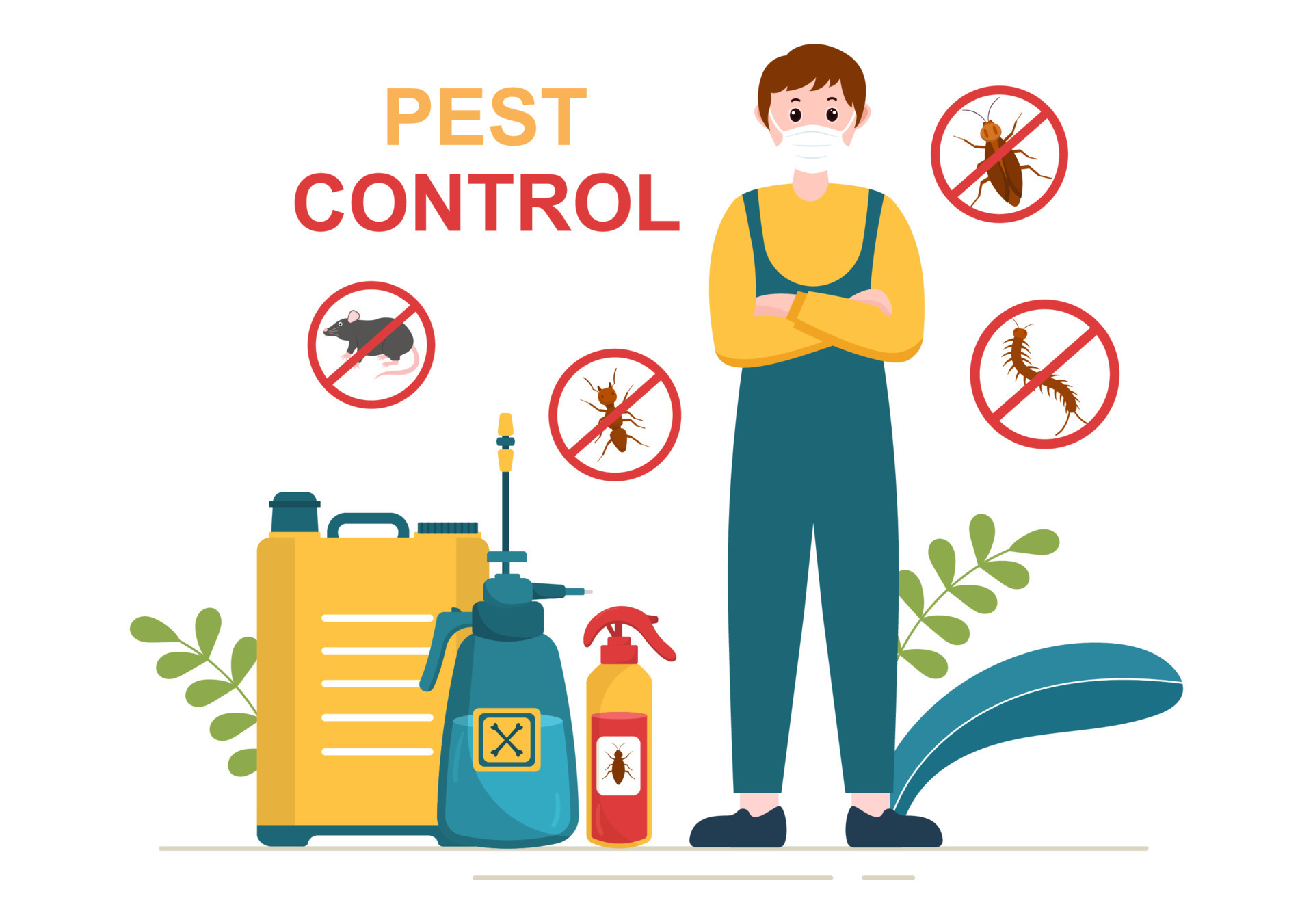Trusted Pest Control Near Me: Quick and Effective Solutions!
Trusted Pest Control Near Me: Quick and Effective Solutions!
Blog Article
Expert Pest Control Techniques for Long-Term Outcomes
In the realm of parasite control, accomplishing sustained effectiveness and long-term outcomes requires a thorough method that goes beyond simple extermination. Expert pest control methods encapsulate an extensive strategy that starts with a detailed assessment and assessment, adhered to by exact insect recognition to comprehend their behavior patterns. The execution of Integrated Bug Management (IPM) principles, combined with eco-conscious therapies, creates the keystone of lasting bug elimination. Nonetheless, real test hinges on the continuous surveillance and upkeep of the treated areas, guaranteeing a pest-free environment for the foreseeable future. By delving into the details of these methods, a deeper understanding of specialist pest control techniques for sustaining results arises.
Examination and Assessment
Upon entering a residential or commercial property for bug control solutions, the preliminary step is a complete assessment and analysis to identify the degree of the problem and identify the most effective therapy strategy. Professional insect control professionals are educated to thoroughly analyze the facilities, looking for signs of insect task such as droppings, nibble marks, nests, or any kind of structural damages. They will certainly additionally analyze the conditions that might be drawing in pests, such as food resources, water leakages, or entry factors.

Pest Recognition and Behavior

Furthermore, understanding the behavior of the determined parasite is essential to executing reliable control measures. Recognizing where bugs nest, what they feed on, and their task patterns can assist pest control experts design approaches to eradicate them efficiently. Some insects may be nocturnal, while others are more energetic throughout the day. This understanding allows for the application of treatments at optimum times for optimum efficiency.
Integrated Pest Administration (IPM)
Integrated Pest Monitoring (IPM) approaches integrate numerous techniques to regulate and avoid parasite infestations in a lasting and environmentally pleasant manner. bed bug treatment. By incorporating methods such as organic control, environment control, alteration of cultural practices, and using resistant selections, IPM aims to minimize using chemical pesticides
One of the key principles of IPM is the focus on avoidance. This aggressive method entails monitoring pest populaces on a regular basis to find any possible issues before they escalate. By recognizing pest issues beforehand, pest control measures can be executed quickly and effectively.
In addition, IPM advertises the use of safe pest control approaches whenever feasible. This can include using all-natural predators of the pests, introducing valuable insects, or utilizing scents to disrupt breeding patterns. By minimizing reliance on chemical pesticides, IPM not just shields the atmosphere but additionally helps preserve an equilibrium in the environment.
Environmentally-Friendly Treatments
Implementing eco-conscious methods in pest control treatments can effectively address invasions while focusing on ecological sustainability. Environmentally-friendly therapies concentrate on minimizing the influence of pest control methods on environments, non-target microorganisms, and human health. These techniques usually involve making use of all-natural predators, such as ladybugs or nematodes, to manage pest populaces, reducing the requirement for chemical treatments. Furthermore, methods like habitat adjustment, such as changing wetness degrees or getting rid of food sources, can help discourage insects without making use of unsafe compounds.
An additional secret facet of environmentally-friendly treatments is using organic and view it biodegradable items that break down swiftly without leaving damaging deposits in the atmosphere. Botanical insecticides originated from plants like chrysanthemums or neem use effective parasite control while positioning marginal threat to non-target types. In addition, employing techniques like warmth treatments or pheromone catches can target details insects with accuracy, lowering the overall environmental influence of parasite control practices.
Ongoing Tracking and Upkeep
Regular inspections by experienced professionals are necessary to recognize any kind of Home Page indications of parasite task, evaluate the effectiveness of previous therapies, and make changes to the bug control plan as needed. By monitoring pest populaces over time, parasite control specialists can track trends, prepare for possible problems, and implement preventive steps to minimize the threat of future problems.
In addition to tracking, upkeep practices are essential for lasting parasite control success. This consists of carrying out correct sanitation actions to remove potential food and water resources for bugs, sealing off entrance indicate avoid bugs from getting in the properties, and dealing with any type of architectural issues that could help with bug problems (pest control). By including ongoing tracking and upkeep right into an incorporated parasite management technique, companies can guarantee a pest-free setting and safeguard their building against costly damages and health risks
Conclusion
In conclusion, using expert parasite control strategies such as complete inspection and assessment, accurate parasite recognition and understanding of their habits, integrated insect management techniques, environmentally-friendly treatments, and ongoing monitoring and upkeep are necessary for try here attaining lasting lead to parasite control. By implementing these approaches, people can properly handle insect problems and keep a pest-free atmosphere in a lasting way.
Report this page